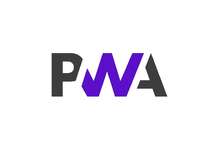Are you planning to do build a website or a platform for your business? If yes, then you can choose a PHP framework when beginning a new PHP project so that the code is well-structured, maintainable, and reusable. With the PHP framework, expanding your app over time is simple.
Several PHP framework solutions are available on the market, including Laravel and Symfony. The hardest part of developing an application in its early stages is picking an appropriate framework. In general, businesses select a PHP framework depending on their comfort levels, experience, popularity of the framework, etc.
In the past, Symfony was constantly brought up when people discussed the finest PHP framework. However, it has been observed that PHP Laravel has rapidly gained popularity over the past couple of years. To do your project, you need to hire a Laravel developer who is an expert in the PHP framework. In that case, which PHP framework is appropriate for your project? Here look at the fundamentals of these two frameworks before analyzing this:
Laravel Vs. Symfony: Overview
Laravel
An open-source framework with model view controller architecture is called Laravel. It generates a web application by merging already existing components from several frameworks. With the help of a PHP Laravel developer, it is feasible to separate the code for business logic and the code for displays. Laravel is quicker at fixing bugs and makes it easy to change the appearance.
Laravel supports third-party tools as well, making the process of creating high-quality websites simpler and quicker. Additionally, it helps correct the most important security problems in web applications, including SQL injection, cross-site scripting, and cross-site request forgery. It is simple to test web applications by automating code testing with PHPUnit.
Symfony
An open-source PHP project is called Symfony. Additionally, MVC architecture is used, which facilitates the creation of scalable web applications. Further, the MVC methodology ensures that your project has a logical structure. The building blocks of web development projects are the reusable and decoupled PHP libraries that make up Symfony. You can carry out common tasks with these components without writing a lot of code. By mapping an application’s operations and activities on the back-end website, Symfony profiler, one of the best tools for tracking behavior, enables developers to follow the behavior of any application.
Laravel vs. Symfony: Popularity
The Laravel PHP framework is much more popular than the Symfony PHP framework. This framework is used to create more than 1 million websites on the internet. Also, only approximately 15,000 websites use the Symfony PHP framework. The best option is if the popular PHP framework is appropriate for your project. This is because a large developer community will be available to assist you at all times.
Laravel vs. Symfony: Speed
PHP Symfony uses various techniques to maintain and manage the speed of the application actively. For instance, developers can control the speed of a particular feature or an entire application by deleting features that are not necessary for the core operation or by improving the code. There are no unique features in the PHP Laravel Framework that help to maintain speed. It primarily provides a suitable version management capability, facilitating future application migration.
Laravel vs. Symfony: Security
Symfony has a strong security system, but it might be challenging to set up. It has a good authorization system and supports a number of different authentication techniques. In most cases, basic security mechanisms are sufficient, while Laravel takes a more direct approach. To get perfect security, you can hire expert Laravel developers for a direct approach to safety.
Laravel vs. Symfony: Learning curve
The learning curve for Laravel is relatively easy. Developers have a variety of ways to learn about this framework, such as through tutorials, videos, and documentation. So, you need to hire a Laravel developer who is aware of the learning ways. It is more challenging to learn Symfony than Laravel. Although there is documentation, there are fewer tutorials or community help than with Laravel.
Key features of Laravel:
- Authentication
One of the essential aspects of a web project is authentication. Due to the built-in authentication system in the Laravel PHP framework, authentication is quick and simple. To successfully execute your web app, you must hire dedicated Laravel developers to set up models and controllers.
- Effective ORM (Object Relational Mapping)
Developers can search the database table using a simple PHP syntax due to the built-in ORM in the Laravel framework. You do not need to create any SQL code. The ease with which this framework can be integrated with Laravel is its best feature.
- MVC architecture support
MVC-based apps are developed using Laravel’s MVC architecture. A model can have numerous views with this PHP framework, facilitating faster development. There is no code duplication since Laravel divides the code for business logic from the code for presentation logic.
- Command-Line interface for Artisan
One of Laravel’s great features is this. The repetitive programming duties are handled by Artisan, a command-line tool incorporated into Laravel. The skeleton code, data structure, and data migration can be developed using these command lines. In this way, this system facilitates database management. Web designers can also write their commands using Artisan.
Key features of Symfony
- Structured MVC
Symfony, the most popular framework, uses MVC, which is perfect for scalable and organized web development apps. By separating the business and presentation layers, this design enables a faster development process. Users can implement new features without spending additional time or effort.
- Reliability
In terms of dependability, Symfony has performed better when compared to other frameworks. Because of this, Symfony is the framework of choice for most web developers when building high-performance online applications.
- Powerful debugging
Debugging is simple with Symfony’s powerful and expandable debugging toolbar. Every new line of code must be tested using this toolbar to guarantee the reliable operation of an application.
- Extensibility
Developers using Symfony can reuse bundles because everything adds functionality and is a bundle. There is no need to alter the Symfony framework because only the bundle may be customized to your specific project needs.
Final Thoughts
As listed above, both Laravel and Symfony are feature-rich frameworks that may be used for various web development tasks. But when it comes to developing web applications quickly, Laravel is, without a doubt, the most excellent option. However, Symfony beats Laravel when it comes to creating complex and sophisticated web applications.






